International
Trump campaign says he will pardon Jan. 6 prisoners on ‘case-by-case basis’ if re-elected
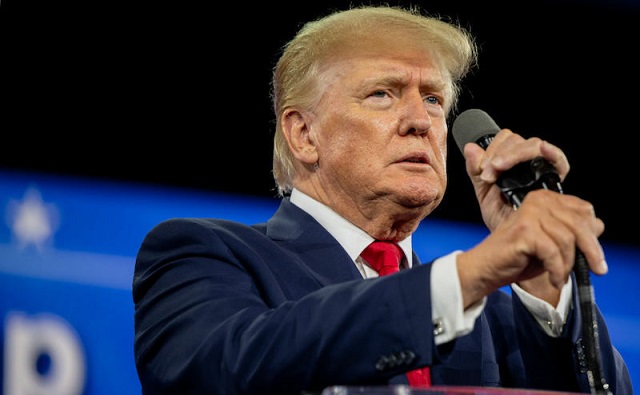
From LifeSiteNews
By Stephen Kokx
When I look at Portland, when I look at Minneapolis, where they took over police precincts and everything else, and went after federal buildings, when I look at other situations that were violent, and where people were killed, nothing happened to them. Nothing happened to them. I think it’s a two-tier system of justice
Donald Trump has clarified that if he is re-elected, he will pardon January 6 prisoners on a “case-by-case basis” instead of acquitting them en masse, as he previously suggested he might.
Trump sat down for an extensive interview with Time magazine last month. It covered everything from abortion and Operation Warp Speed to foreign policy and what a potential second term would look like.
Time asked Trump if he would “consider pardoning every one of” the more than 800 persons imprisoned for their actions in Washington, D.C., on January 6, 2021. He responded that he would “absolutely” consider doing that for the “J-6 patriots” but added, “if somebody was evil and bad, I would look at that differently.”
Trump also noted that “many of those people were ushered in [to the Capitol]. You see it on tape, the police are ushering them in. They’re walking with the police.”
The day the Time interview went to print, Karoline Leavitt, the national press secretary for the Trump campaign, issued a statement to NBC News.
“As President Trump has promised, he will pardon January 6th protestors who are wrongfully imprisoned by Crooked Joe Biden’s Justice Department, and those decisions will be determined on a case-by-case basis when he is back in the White House,” she said.
Trump has commented on how he would handle January 6 detainees on multiple occasions. In a Truth Social post on March 11, he said one of his first acts as the 47th president would be to “Free the January 6 Hostages being wrongfully imprisoned!” At a rally in Conroe, Texas, in January 2022, he announced that, if he is re-elected, “those people from January 6” will be treated “fairly,” and “if it requires pardons, we will give them pardons because they are being treated so unfairly.”
At the Pray Vote Stand Summit in September 2023, Trump vowed to pardon or commute the sentences of recently jailed pro-life advocates as well as “every political prisoner who’s been unjustly persecuted by the Biden administration.”
As previously reported by LifeSite, much of the footage released by the mainstream media about the events in Washington, D.C., were held back by the corrupt January 6 Congressional Committee, which included Deep State RINOs like Liz Cheney. Tucker Carlson previously observed that “taken as a whole” the “video record does not support the claim that January 6 was an insurrection. In fact, it demolishes that claim. And that’s exactly why the Democratic Party and its allies in the media prevented you from seeing it.”
GOP Congresswoman Marjorie Taylor-Greene has been one of a few elected officials on Capitol Hill to draw attention to the human rights abuses carried out against detainees over the past several years.
Trump told Time that the way January 6 protesters have been treated is far different from the way Black Lives Matters and Antifa rioters were in years past.
“It’s a two-tier system” he noted. “When I look at Portland, when I look at Minneapolis, where they took over police precincts and everything else, and went after federal buildings, when I look at other situations that were violent, and where people were killed, nothing happened to them. Nothing happened to them. I think it’s a two-tier system of justice. I think it’s a very, very sad thing.”
Trump also said that he “tried to stop” protesters from entering the Capitol. “I offered 10,000 soldiers and Nancy Pelosi turned me down. So did the mayor of Washington, she turned me down in writing,” he said.
Trump will face off against presumptive Democratic nominee for President Joe Biden this summer in a re-match of the 2020 race. At present, most polls show Trump is ahead in a number of key swing states.
Great Reset
Biden Administration Eager to Sign WHO Pandemic Treaty
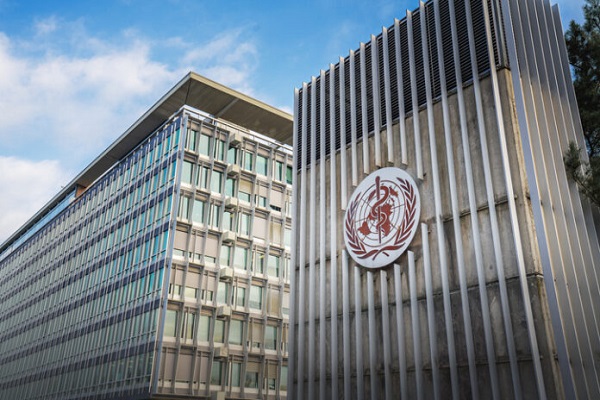
From Heartland Daily News
By Bonner Russell Cohen, Ph.D.
The Biden administration signaled its support for the World Health Organization’s (WHO) new pandemic treaty expected to be finalized at its World Health Assembly in Geneva, Switzerland, the final week of May.
Pamela Hamamoto, the State Department official representing the United States at the meeting, stated that “America is committed to signing the treaty that will ‘build a stronger global health structure,’” wrote John Tierney, a senior fellow at the Manhattan Institute and a contributing editor, in the City Journal.
Adoption of a legally binding pact governing how countries around the world are to respond to future outbreaks like the recent COVID-19 pandemic has been the goal of WHO-directed negotiations since 2021. The WHO, a United Nations-sponsored organization, came under sharp criticism for its handling of the coronavirus.
On May 8, attorneys general from 22 states sent President Biden a letter saying they oppose the accords which will turn the WHO into the “world’s governor of public health.” The letter says giving the WHO such authority violates the U.S. Constitution, and could lead to censorship of dissenting opinions, undermine Constitutional freedoms, and give the WHO power to declare any “emergency” besides health including climate change, gun violence, and immigration.
Missteps on COVID-19
In a post on Twitter (now X) on January 14, 2020, the WHO stated: “Preliminary investigations conducted by the Chinese authorities have found no clear evidence of human-to-human transmission of the novel #coronavirus (2019-nCoV) identified in #Wuhan, #China.”
Two weeks later, on January 30, 2020, WHO’s Emergency Committee issued a Public Health Emergency of International Concern (PHEIC), stating, “The Committee emphasized that the declaration of a PHEIC should be seen in the spirit of support and appreciation of China, its people, and the actions China has taken on the front lines of this outbreak, with transparency and, it is to be hoped, success.”
The WHO’s initial investigation into the origins of COVID-19 concluded it was improbable that the virus resulted from experiments at the Wuhan Institute of Virology, though it later acknowledged that it could have come from a lab leak at Wuhan. The WHO’s investigation, which was thwarted by Chinese officials, ultimately reached no conclusion. President Trump announced the United States’ withdrawal from the WHO, a decision reversed by President Joe Biden on January 20, 2021.
More Smoke and Mirrors
Further undermining the WHO’s credibility in setting policies on managing a future pandemic, the group decided to include Peter Daszak, president of the New York-based EcoHealth Alliance, in its initial investigation into the origins of COVID-19.
Daszak and EcoHealth Alliance prominently featured in an investigation by the U.S. House Select Subcommittee on the Coronavirus Pandemic into the government’s funding and lack of oversight of gain-of-function research at the Wuhan lab, for which EcoHealth received grants from the National Institute of Allergy and Infectious Diseases and the National Institutes of Health.
In an interim report released on May 1, 2024, the subcommittee said there is “significant evidence that Daszak violated the terms of the NIH grant awarded to EcoHealth. Given Dr. Daszak’s apparent contempt for the American people and disregard for legal reporting requirements, the Select Subcommittee recommends the formal debarment of and a criminal investigation into EcoHealth and its President.”
After the release of the report, U.S. Rep. Tom Emmer (R-MN) told the Washington Examiner, “The World Health Organization covered up the Chinese Communist Party’s role in developing and spreading COVID-19 and has since failed to hold them accountable for the global pandemic that killed millions, upended our daily lives, and destroyed thousands of small businesses.”
Public Fed Up
The WHO’s shaky record on COVID, including its close ties to China and Peter Daszak, have taken a toll on the public’s willingness to accept its leadership in any future pandemics.
A poll conducted by McLaughlin & Associates for the Center for Security Policy, released on April 17, found that 54.6 percent of likely voters oppose tying the United States to a WHO pandemic treaty, and just 29.0 percent favor such a move.
Agreements Bypass Congress
While providing few details, at the World Economic Forum in Davos, Switzerland in January, WHO Director General Tedros Ghebreyesus said, “The pandemic agreement can bring all the experience, all the challenges we have faced and all the solutions into one. That agreement could help us prepare for the future in a better way.”
The “treaty” the Biden administration is eager to sign will likely be an executive agreement, like the 2015 Paris Climate Agreement, which was not presented to the U.S. Senate for ratification but contained “commitments” President Barack Obama pledged to honor.
Also in the works in Geneva are amendments to International Health Regulations, which Congress would not approve or disapprove.COVID
WHO’s Power Grab
Sen. Ron Johnson (R-WS), sent a letter to President Biden signed by all 49 Republican senators, expressing their concern about the powers that could be handed to WHO, on May 2.
“Some of the over 300 proposals for amendments made by member states would substantially increase the WHO’s emergency powers and constitute intolerable infringements upon U.S. sovereignty,” the letter states.
Craig Rucker, president of the Committee for a Constructive Tomorrow (CFACT), who has attended UN-sponsored conferences around the world for over 30 years, says the WHO is a destructive force.
“WHO’s performance during COVID-19 was a lethal combination of incompetence and dishonesty,” said Rucker. “The organization failed to protect public health and went to extraordinary lengths to cover up China’s role in fostering gain-of-function research at the Wuhan lab. Ratification of any WHO pandemic treaty would be nothing short of a travesty.”
Bonner Russell Cohen, Ph.D. ([email protected]) is a senior fellow at the National Center for Public Policy Research.
Automotive
Biden’s Climate Agenda Is Running Headfirst Into A Wall Of His Own Making
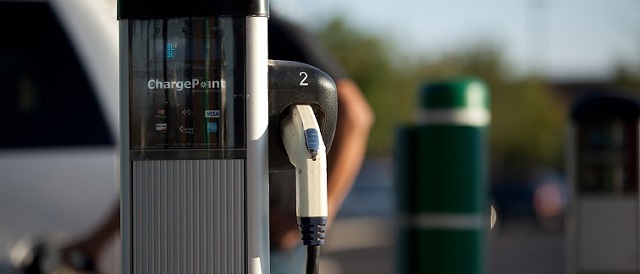
 From the Daily Caller News Foundation
From the Daily Caller News Foundation
By WILL KESSLER
President Joe Biden’s administration unveiled tariffs this week aimed at boosting domestic production of green energy technology, but the move could end up hamstringing his larger climate goals.
The tariffs announced on Tuesday quadruple levies for Chinese electric vehicles (EVs) to 100% and raise rates for certain Chinese green energy and EV components like minerals and batteries. Biden has made the transition to green energy and EVs a key part of his climate agenda, but hiking tariffs on those products to help U.S. manufacturing could jack up prices on the already costly products, slowing adoption by struggling Americans, according to experts who spoke to the DCNF.
The risks posed by hiking levies on green technology expose the inherent tension between Biden’s climate agenda and his efforts to protect American industry, which often struggles to compete with cheap foreign labor. Items on his climate agenda typically raise costs, and requiring companies to comply could make them uncompetitive on the world stage.
“These tariffs are a classic example of the Biden administration’s left hand not knowing what the right hand is doing,” E.J. Antoni, a research fellow at the Heritage Foundation’s Grover M. Hermann Center for the Federal Budget, told the DCNF. “The inability to import Chinese-made EVs due to prohibitively high costs will necessitate importing raw materials and parts for EVs from China. Since automakers can’t afford to build and assemble the vehicles here, prices will have to rise. In other words, American consumers will pay the cost of this tariff, not the Chinese.”
The White House, in its fact sheet, pointed to China artificially lowering its prices and dumping goods on the global market as the justification for the new tariffs in an effort to help protect American businesses. China has pumped huge subsidies into its own EV industry and supply lines over the past few years, spawning a European Union investigation into vehicles from the country.
“Tariffs on Chinese EVs won’t just make Chinese EVs more expensive, they will also make American EVs more expensive,” Ryan Young, senior economist at the Competitive Enterprise Institute, told the DCNF. “This is because domestic producers can now raise their prices without fear of being undercut by competitors. Good for them but bad for consumers — and for the Biden administration’s policy goal of increased EV adoption.”
Several American manufacturers are already struggling to sell EVs at a profit, with Ford losing $4.7 billion on its electric line in 2023 while selling over 72,000 of the vehicles. To ease price concerns and increase EV adoption, the Biden administration created an EV tax credit of $7,500 per vehicle, depending on where its parts are made.
The market share of EVs out of all vehicles fell in the first quarter of 2024 from 7.6% to 7.1% as consumers opted to buy cheaper traditional vehicles instead. Growth in EV sales increased by just 2.7% in the quarter, far slower than the 47% growth that the industry saw in all of 2023.
The Biden administration has also sought to use regulations to push automakers toward electrifying their offerings as consumers refuse to voluntarily adopt EVs, finalizing rules in March that effectively require around 67% of all light-duty vehicles sold after 2032 to be electric or hybrids.
“By raising the price — and thereby stunting the deployment — of EVs, the tariffs undermine the Biden administration’s stated goals of reducing carbon emissions (as many U.S. environmentalists and EV fans have recently lamented),” Clark Packard, research fellow in the Herbert A. Stiefel Center for Trade Policy Studies at the Cato Institute, wrote following the announcement. “The EV tariffs (and also-announced solar tariffs) would continue the administration’s habit of choosing politics and protectionism over their environmental agenda.”
Despite the subsidies, the 25% tariff that is currently in place for Chinese EVs already prices the product out of the U.S. market, resulting in no Chinese-branded EVs being sold in the country, according to Barron’s. Only a handful of the more than 100 EV models being sold in China appeal to American consumers, and none of them can compete under current levies.
“Something like this happened just a few years ago when former president Donald Trump enacted 25% steel tariffs in 2018,” Young told the DCNF. “Domestic steel producers raised their prices by almost exactly the amount of the tariff, and America soon had the world’s highest steel prices. As a result, car prices went up by about $200 to $300 on average. Larger trucks with more steel content increased even more. Now Biden is going to do the same thing to EVs.”
I won’t allow American towns and workers to be hurt by China’s unfair trade practices that flood our markets with cheap products.
That’s what these new tariffs are all about. pic.twitter.com/GGApGqtg7O
— President Biden (@POTUS) May 15, 2024
In the year following the increase in steel tariffs under the Trump administration, U.S. Steel’s operating profit rose 38%, prices were hiked 5 to 10% and revenue was up 15% due to reduced competition, according to CNN.
Despite the massive tariff hike on EVs, Biden only raised the tariff rate on Chinese lithium-ion EV batteries and battery parts to 25%, according to the White House. The tariff rate on certain essential minerals, like natural graphite, was also hiked to just 25%.
“Despite rapid and recent progress in U.S. onshoring, China currently controls over 80% of certain segments of the EV battery supply chain, particularly upstream nodes such as critical minerals mining, processing, and refining,” the White House wrote in its fact sheet. “Concentration of critical minerals mining and refining capacity in China leaves our supply chains vulnerable and our national security and clean energy goals at risk.”
China has broad control over the majority of minerals necessary to construct EVs, possessing nearly 90% of the world’s mineral refining capacity. Sources of the required minerals often also have serious human rights concerns, such as the world’s supply of cobalt, which has widespread ties to child labor.
Biden attacked former President Donald Trump during the 2020 election for the broad tariffs that he put on Chinese goods, noting that “any freshman econ student” could point out that the costs of the tariffs would be passed on to American consumers.
EV makers have increasingly struggled over the past year to maintain profits amid stalling demand, with the largest American EV manufacturer, Tesla, reporting a 10% drop in year-over-year revenue in the first quarter of 2024. Tesla is one of several EV makers that have announced layoffs in recent months.
“Fortunately, the EV market is still small in the U.S. and Chinese EVs are an even smaller slice of that small pie,” Antoni told the DCNF. “Even if the EV market in the U.S. were large, these tariffs would not help the domestic EV industry. While consumer demand for EVs would shift to domestic models, an increase in domestic production would rely on very expensive inputs from China, cutting into profits.”
The White House did not respond to a request to comment from the DCNF.
-
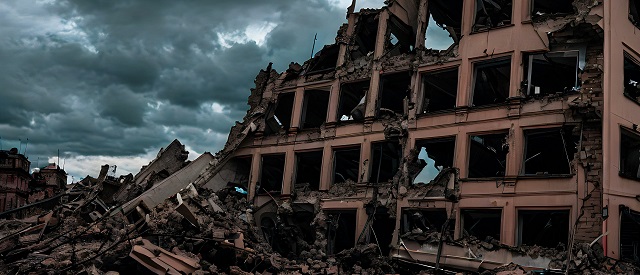
 conflict2 days ago
conflict2 days agoWhite House Reportedly Worried About Russia’s Sudden Momentum Months After Biden Declared Putin ‘Already Lost’ War
-

 Crime1 day ago
Crime1 day agoThe US Canadian border: Greatest number of terrorist watch list individuals being apprehended at northern border
-

 COVID-191 day ago
COVID-191 day agoNIH Quietly Altered Definition For Gain-Of-Function Research On Its Website, Former Fauci Aide Confirms
-

 Economy13 hours ago
Economy13 hours agoCanadians experiencing second-longest and third steepest decline in living standards in last 40 years
-
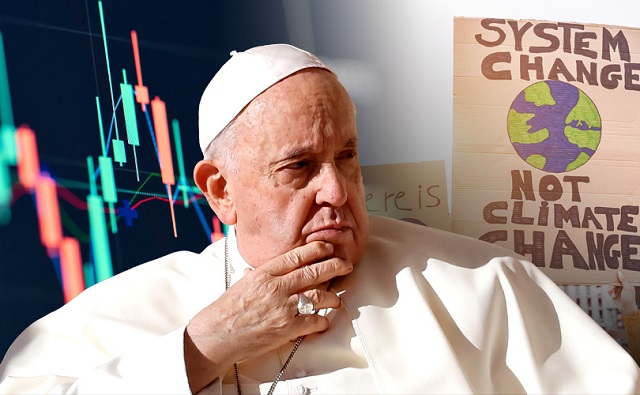
 Energy1 day ago
Energy1 day agoPope Francis calls for ‘global financial charter’ at Vatican climate change conference
-

 Opinion16 hours ago
Opinion16 hours agoOrdinary working Canadians are not buying into transgender identity politics
-
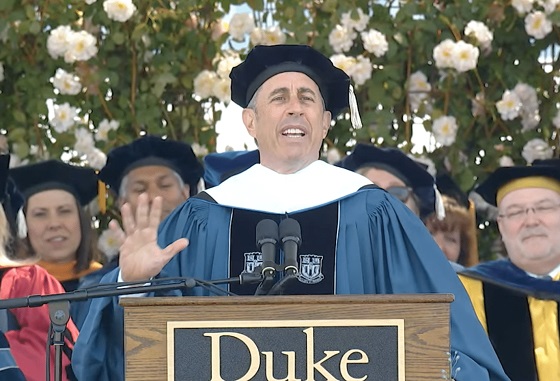
 Bruce Dowbiggin1 day ago
Bruce Dowbiggin1 day agoJerry Came to See The Babies. And They Walked Out On Him
-

 Great Reset14 hours ago
Great Reset14 hours agoBiden Administration Eager to Sign WHO Pandemic Treaty







